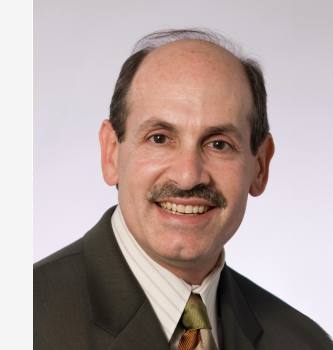Each Tuesday, the Daily Voice features a first-person narrative from a researcher explaining the science behind a recent grant, and the inspiration or impetus behind becoming a scientist at UMass Medical School. If you know of a researcher you’d like to see profiled, send an email to UMassChanCommunications@umassmed.edu.
|
Jerry H. Gurwitz, MD, the Dr. John Meyers Professor of Primary Care Medicine and professor of medicine, family medicine & community health, and quantitative health sciences, talks about his grant iADAPT: Off-Label Use of Antipsychotics in the Nursing Home, Agency for Healthcare Research and Quality; one year, $1.5 million. |
 |
My research focuses on improving the quality and safety of medication use in the elderly. Medications are the most common medical intervention used in older patients, with nearly 60 percent of older adults in the community taking more than five different medications per week. Nearly one in five actually use more than 10 different medications per week. This high level of medication use increases the risk of serious drug interactions, medication side effects and medication errors. Our research has shown that over 1.9 million drug-related injuries occur in community-dwelling older adults every year and many of these adverse events could be prevented.
The ultimate goals of our research are to optimize the effectiveness of medications in older patients while reducing the risk of adverse drug effects. Our most recent work focuses on off-label use of antipsychotic medications in the nursing home setting. Up to 30 percent of nursing home residents are prescribed antipsychotic medications, often to treat the behavioral symptoms of dementia, even though antipsychotic medications pose a very high risk of adverse effects, including falls, fractures and increased mortality. We are hoping that our research will lead to a more cautious and safe approach to using these medications in the very frail and vulnerable population of elderly persons who reside in nursing homes.
I had a very close relationship with my grandparents growing up, and I have always enjoyed being around and interacting with older people. That feeling carried through into my years as a student at UMass Medical School, and during my residency in internal medicine. I decided to pursue a career in academic geriatric medicine and I felt that devoting a portion of my career to research on medication safety in the elderly would provide a terrific opportunity to help the growing population of seniors in our country.
I actually grew up in Worcester and I have always loved this community. I was given the chance to attend UMass Medical School and subsequently remain in Worcester for my residency training. After 10 years in Boston, I was thrilled to return to Worcester to take a position as executive director of the Meyers Primary Care Institute, a joint endeavor of UMass Medical School, Fallon Clinic, and Fallon Community Health Plan. The Meyers Institute focuses on improving the health of populations and communities through research and educational initiatives. I also serve as chief of the Division of Geriatric Medicine at the Medical School.
My job provides a wonderful mix of things that I really enjoy: taking care of older patients, teaching medical students and residents, mentoring young researchers, and pursuing my own research. I never